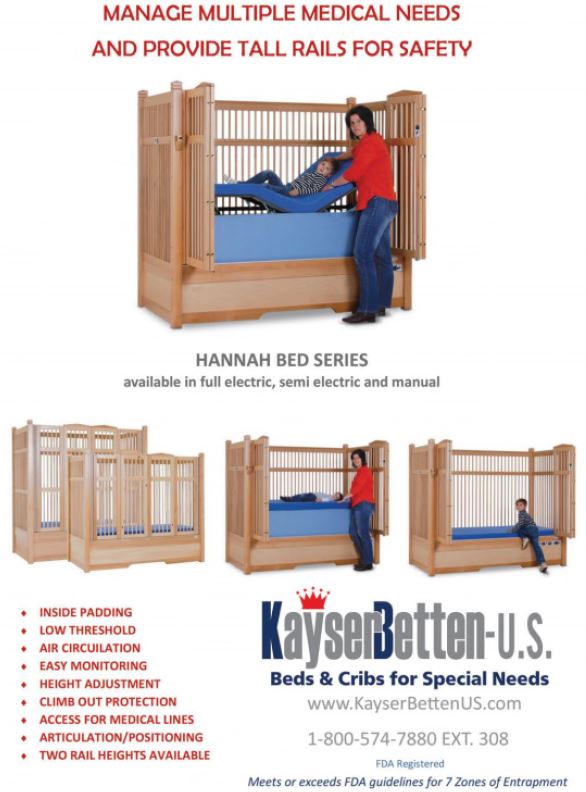have health insurance. … I had the kind of jobs where I could hop in the car once or twice a week and drive 50 minutes each way to get him to therapy."
Millions of Americans face even bigger barriers to care. Families in rural areas often travel hours for services. Many Black and Hispanic families face persistent inequities in the U.S. health care system. Nationally, parents of children with autism are 10 times as likely to say they're "usually or always" frustrated in their efforts to get services. Primary care physicians – a convenient option for many families – could fill some of those gaps if the doctors had better training, said Dr. Kristin Sohl, a pediatrician who teaches these skills at the University of Missouri. "We've got to make this accessible so that people can have access to what they need when and where they need it," Sohl said.
"As Alex struggled, the family was lost. Time and again, pediatricians, psychiatrists, and therapists minimized Alex's symptoms or shuffled him to someone else. Long waitlists for therapy remain the norm nationwide. So are medical bills that can reach tens of thousands of dollars.
But many physicians feel ill-equipped to provide this care. In one survey, just 40% said they were very confident that their care for patients with disabilities was as good as for other patients. Only about half strongly agreed that they welcome patients with a disability.
Training remains one barrier. Even though as many as 16 million Americans have autism or another intellectual or developmental disability, the subject is a small part of the curriculum at most medical schools. Another obstacle, Sohl and others say, is a tendency in American health care to simply refer patients to specialists. "It's so hierarchical," Sohl said.
Changing that has become Mai Pham's life's work. She quit her job at a major health insurer in 2020 to start Institute for Exceptional Care. The nonprofit aims to overhaul the way doctors are trained and paid so they can spend more time with patients with disabilities, instead of rushing through visits because of billing pressures.
"We've made huge investments in the science and in some ways the clinical aspects of care," Pham said. "But we haven't thought about how to make any of that sustainable."Pham said that is particularly important because so many patients are aging – and developing medical conditions such as diabetes, heart disease, and dementia. "How you communicate to someone like my son or how you manage chronic conditions for him will need to be different," Pham said. "The health system hasn't thought about that."
Help for Alex ultimately came from a specialist. Adler Werner, whom Pham found through friends, became what Pham described as an "autism coach," helping the family understand what Alex was experiencing.
Adler Werner, now a cognitive behavioral therapist, focused on empowering Alex so he could appreciate his strengths and develop tools to navigate challenging tasks like communicating verbally and managing stress.
"What we want to be doing is working with young people to allow them to understand their differences, accept and own them, not have them be seen as character flaws," Adler Werner explained. "Alexander is really extraordinary and unbelievably interesting."
I caught up with Alex not long ago in Vermont. He's at a program that helps teenagers like him develop skills to live independently. He's taking math at the University of Vermont. He's been rock climbing and hiking with classmates in the Green Mountains.
Alex said he's been enjoying himself. "I'm learning about muscles I never knew I had," he said.
Pham and her husband have been cheered by his progress. But they still worry about what's ahead for Alex in a health care system that's unprepared for him.
ABOUT THE AUTHOR:
Noam N. Levey, Senior Correspondent, joined khn.org in January 2021 after 17 years at the Los Angeles Times, the last 12 as the paper's national health care reporter based in Washington, D.C. Noam has reported on health care issues from more than three dozen states and four continents and won numerous honors, including the prestigious NIHCM award for his 2019 series "Inside America's High-Deductible Revolution." He has also been published in Health Affairs, JAMA and the Milbank Quarterly. Noam started his career at newspapers in Duluth, Minnesota; Montgomery, Alabama; and the United Arab Emirates. Prior to the LA Times, he was an investigative reporter for the San Jose Mercury News. Noam has a degree in history and Near Eastern studies from Princeton University.
